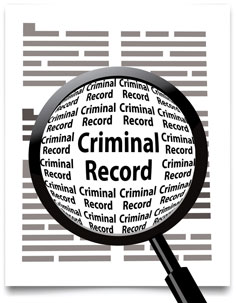All About Wiping Off Your Criminal Record For Ever
In many states, you can get your criminal record expunged if you are eligible. The process of expungement formally clears the criminal record by sealing or destroying the state or federal. The net effect is as if you were never convicted of a crime. In California, expungement does not remove the conviction from your record; instead, it shows that the charges have been dismissed. You can gain significantly from the expungement of criminal records as you will not be denied employment, professional licenses, restoration of the right to vote, or other advancement opportunities.
Who Is Eligible for Expungement?
To qualify for expungement, you must not be currently in jail, or prison have no outstanding fines and fees, not be on parole or probation, and not be currently charged for any crime. You will have been convicted for an eligible felony or misdemeanor, be not a parolee, should have been sentenced to s county jail or be on probation for the crime, not been sentenced to state prison or be out on parole from there. Also, you must not have been convicted of a federal crime. You will not be eligible if you have been convicted for murder, kidnapping, or sexual offenses against children. Your expungement may be reversed if you repeat the offense. You will not be allowed a gun permit in California or join the police force. According to the Superior Court of California, sexual offenses cannot be expunged.
Applying for Expungement
Even though it is possible to file for expungement by yourself, it is advisable to hire a reputed firm of expungement attorneys since the process is complicated and you do not want to make mistakes. If you are applying on your own, you need to fill out and file the petition for expungement, pay the applicable fee or ask for a waiver and serve the district of the city attorney. If the court requires, you will have to appear before it and give reasons why you want the expungement. In case the judge rejects your petition, you can file a request for reconsideration or file your request again later on after six months. Once your petition is accepted, the court will note that your conviction has been overturned and your criminal record expunged permanently. If you apply through your lawyer, he handles the preparation of the documentation and the application process. He will also advocate on your behalf before the court if required.
The Expungement Hearing
The hearing for expungement is brief and is held before a judge without any jury being involved. Your demeanor and personal presentation count a lot. The judge will evaluate your petition based on several factors like your probation status, your ability to find and hold employment, other convictions, if any, and your contribution to society, including community service.
Conclusion
If the judge accepts your petition for expungement, you will receive a signed order by mail confirming the dismissal of your case. For all practical purposes, you will no longer have to disclose your criminal records unless you run for public office, apply for a state license, or contract with the California Lottery Commission.



